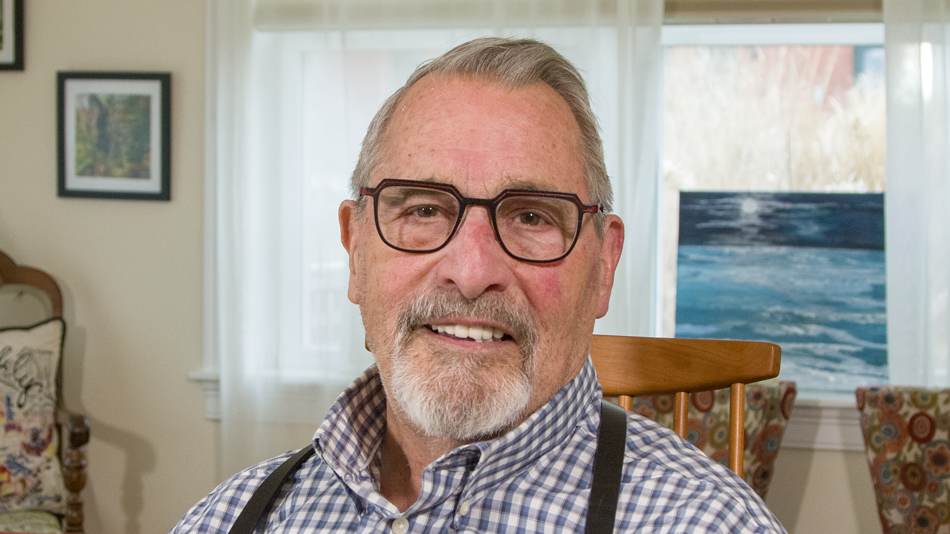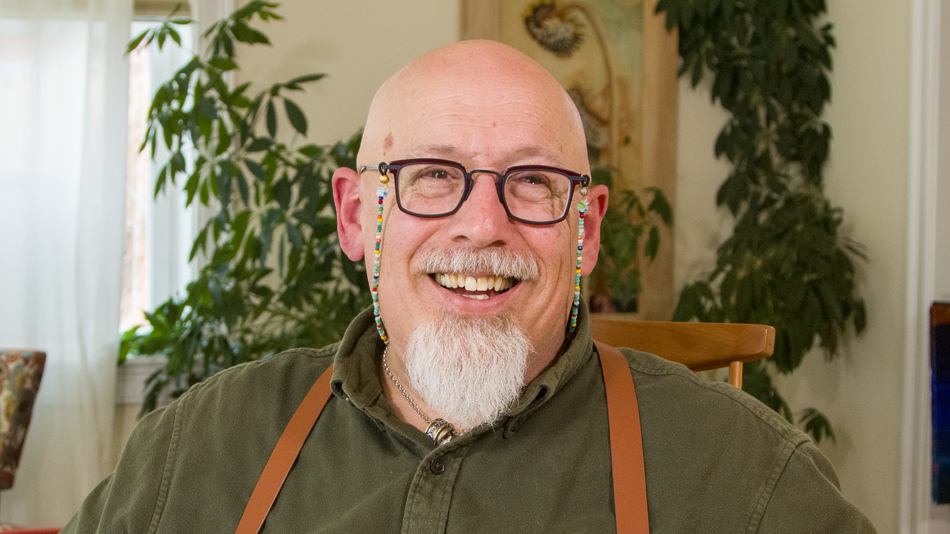Hi, my name is James Garcia and I am from New York City.
In 1996, I enlisted in the Air Force. During that time, don’t ask, don’t tell was in place. That means the military wasn’t supposed to ask you, and it was preferred that you didn’t disclose. I knew from the beginning that enlisting in the military as a gay man wasn’t legal, that I took a risk. Knowing that at any point I could be discharged, I could be harassed or worse, but I did it.
Shortly after the onboarding process, I was sent to Texas for a bootcamp. Once basic training was complete, they sent you to technical training school for about six weeks. Two months into technical school, I received a call from a friend who told me that someone I had been dating for several years was murdered. It was probably one of the most horrible experiences ever – I’ve ever had to live through. And I think about that… that moment. I can picture myself in that room, on the payphone, and hearing her tell me the story about how he died.
I remember going to my dorm room and losing it, just throwing things around. I couldn’t cry, I couldn’t scream because then I would get questions, “What happened? What happened?” I had to live with that for several months. I couldn’t request time off to go to his funeral. I couldn’t do anything.
But shortly after leaving technical training school, I got my wish. I got to go to the base in New Jersey so I could be closer to New York City. Before I left technical training school, I’d been corresponding with someone in the city. We had met shortly before I left for basic training, and I liked the guy.
Unfortunately, one of the supervisors heard about it, and didn’t feel comfortable with me serving, and he created a very toxic energy environment. It made me extremely uncomfortable. I didn’t know how to address it without disclosing who I am, because I knew it wasn’t legal to serve as a gay man.
At that time, I started dating the guy that I had been corresponding with. It wasn’t until later in the year in 1997 that I started to create a plan with his support. He connected me to an organization, Service Members’ Legal Defense Network. They’re based in Washington DC and they help service members actively serving in the military
Obviously, I sought their support and guidance, because I didn’t know how to approach it. I didn’t know what risks there were self-disclosing. All I knew was it was illegal. I was afraid that not only would I lose the respect from my peers, but risk losing all of the benefits. When you serve, it’s all about serving with integrity, and I couldn’t continue to lie about who I am.
When you serve, it's all about serving with integrity, and I couldn't continue to lie about who I am.
I eventually gave the commander of the base at that time a letter disclosing who I am. v The conversation moved to “Well, we’re going to ask you to leave the base now, and we’ll call you back once the process investigation is closed.”
I packed everything, didn’t talk to anyone in the base, went to my car and drove back to the city. Three weeks go by, I was called by the attorney’s office on base and asked to come and sign my discharge papers. There was a little part of me that feared I would get a dishonorable discharge. It happened all the time to gay men and women who were found out, who were outed by their peers. But I received an honorable discharge.
Shortly after signing my documents, I went back to my squadron and they were upset that I had to leave, but I was surprised. They wanted to celebrate my service and they all took me out to lunch.
I have no regrets signing up. I loved everything about the military, except this experience. I share my story as a reminder, not only to myself, but to others who didn’t know this was illegal, that you couldn’t serve being a gay man or woman, and also a reminder that there’s so much more work that needs to be done to protect our current rights and rights of future generations.








Share